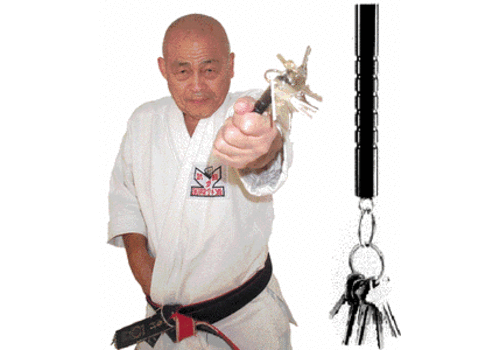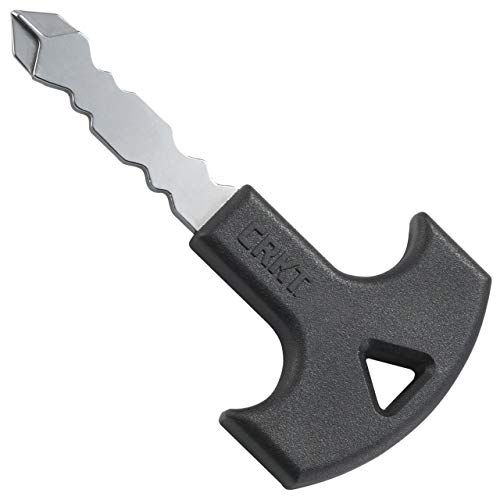
Consider these things before you buy a personal alarm. Depending on your situation, you may need a louder noise than a human voice. Some personal safety alarms make noise at 115dB but you should have one that makes 120dB. Loud noise can be a deterrent for thieves and attackers. The alarm must be easy-to-use so that it doesn’t disrupt meetings, or scare off crowded restaurants.
Cost of personal safety alarms
You can choose from a range of personal safety alarms with different prices and features. Some have only a whistle, others have flashlights, built-in whistles, and many other features. Depending on the type and brand, personal safety alarms can range anywhere from $8 to $25. The cheapest personal safety alarms cost less and can only be activated by pressing a button or using a pin mechanism. Personal safety alarms in the middle range cost between $12 and $25, and come usually with a flashlight.

Price for keychain-style devices
You may feel tempted to get a personal safety alarm that is keychain-style for under $50 if your budget is tight. You should be aware about the benefits and features of these devices. They should fit comfortably in your hand, be discreet enough to disguise as jewelry, and not be too loud. While most keychain-style personal alarms will last for at least a year, you should check their batteries for defects.
Loudness to 130 dB Alarms
An effective way to deter theft is to use a personal safety alert. This alarm is a great way to alert others about an imminent attack. Personal alarms can be heard at 130 dB and are effective in scaring off any potential attackers. These devices are useful for both adults and children, and they can be concealed in a small bag or pocket. A personal alarm is not suitable for men.
Cost of button-activated devices
Personal safety alarms can be activated with a push of a button or by pulling a bolt or ring. Button-activated devices can be used in the same manner as car key fobs. They require that the user simply push a single button or pull a bolt. The button-activated models can be more cost effective than the other methods. Before purchasing a button-activated personal safety alarm, it's important to know the specific features and costs of each type.

Preferences concerning personal safety alarms
There are many differences between personal safety alarms used in hospitals and those in private homes. Personal alarms that make loud, shrieking noises can be less effective than those that make coded, quiet sounds. Hospitals may also be advised to use panic buttons, although no studies have shown them to be effective. In the end, it is up to the nurse to choose which setting they use for personal safety alarms.
FAQ
How can I learn self protection at home
There are many things you can do to improve your self protection skills. Martial Arts is a great way to get started. Martial Arts are great because they teach you how to defend yourself without using weapons. They can also improve confidence and strength. Online classes are also available at most schools. It is important that you know which type of martial arts you wish learn. Do you want to learn Kung Fu? Or perhaps Karate? These two styles are very different from each other, but both are excellent choices. The key difference between these styles is the style of fighting. Karate is focused on striking techniques, while Kung Fu focuses more on grappling and kicking.
You should also consider whether the school offers instruction in multiple forms. This refers to all the different martial arts styles taught at a school. Some schools only offer instruction in Tai Chi while others can teach you all forms of martial art. Make sure you only study at a well-respected school, regardless of what your goals are. Ask around to see if anyone you know has studied there and asked questions regarding the instructors' background and training history. Visit the school to speak with someone who has taught there if possible.
What are some quick self-defense moves you can do?
Self-defense techniques may include punches or kicks, elbows or knees, head butts and other strikes. These techniques may include grappling, such as wrestling or judo, and jujitsu.
Self-defense techniques can be used for protection against an attacker who wants to hurt you.
They can also be used to defend themselves against another person being attacked.
There are many self-defense methods. You should choose the one that best suits you.
Do stun guns hurt people?
You're not wrong. A stungun works by injecting small amounts of current directly into the skin.
This doesn't mean that you will suffer permanent damage.
Statistics
- The Rape, Abuse & Incest National Network reports that 70 percent of sexual violence cases aren't committed by random strangers in a dark alley but by people we know: friends, family, partners, co-workers, etc. (healthline.com)
- Most likely, you'll get tapped out by 90% of the people in your first 3-5 months. (mmaclan.com)
- Kung Fu alone has 400 unique martial art styles – and whilst you likely won't be able to find a school for each form, many other martial arts are completely different altogether. (budodragon.com)
- Verbal harassment was the most common form, but 51 percent of women said they were touched or groped in an unwelcome way, while 27 percent of women survived sexual assault. (healthline.com)
External Links
How To
How to Survive An Invasion At Your Home
Home invasion can be a frightening thought, especially if there are children involved. When we began our home security system installation journey, we didn't realize we'd live through it ourselves. Here's our experience so far.
-
Don't let your children witness the attackers. Two men broke into the house while our children were sleeping upstairs. They were taken downstairs by us until police arrived. Our kids weren't hurt, but they saw enough to traumatize them.
-
Lock All Valuables. The safe is located in our bedroom. We keep all valuables locked up. Even if someone broke into the house, they won’t have access to it.
-
Keep an eye out for burglars. We live in a neighbourhood that is notorious for burglaries. We watch out for suspicious cars and people.
-
Have a Backup Plan. We will provide financial support for our family in the event of an emergency. We have also made a plan to leave this country, if needed.
-
Always be prepared If you ever find yourself in a situation where you must defend your life, you must be prepared. Be prepared with food, water, as well as other supplies.
-
Get help immediately by calling 911. Call 911 immediately after finding out someone is breaking into your house. It's better to call the authorities than to wait for them to break down your door.
-
Use Common Sense. Do not let anyone enter your home if you don't feel at home. Do not invite strangers.
-
Seek out help from neighbors and other people in the local area. If you feel unsafe, call your neighbors or friends. They can help you watch your back while you call the police.
-
Keep calm and do what is instructed by police officers. Be calm and do what officers tell you to. Don't run away or resist arrest.
-
Take pictures of any evidence. Any evidence discovered during the investigation should be taken pictures. This includes fingerprints, blood samples, and other items.
-
Local Law Enforcement. You can file a police report even if nobody was hurt. This will help to prevent future crimes.
-
Call the Insurance Company immediately. You should immediately contact your insurance company. Let them know everything and then ask for an adjuster.
-
Retire Personal Belongings. Before you leave the scene, remove personal belongings. Take off expensive jewelry and keep it safe.
-
Clean Up After Yourself. Keep your surroundings clean. Make sure you empty the trash, clean up any broken glass, and lock all doors.
-
Talk about What Has Been. It is not a good idea to talk about the events that happened to you. You never know who could use this information against your later.